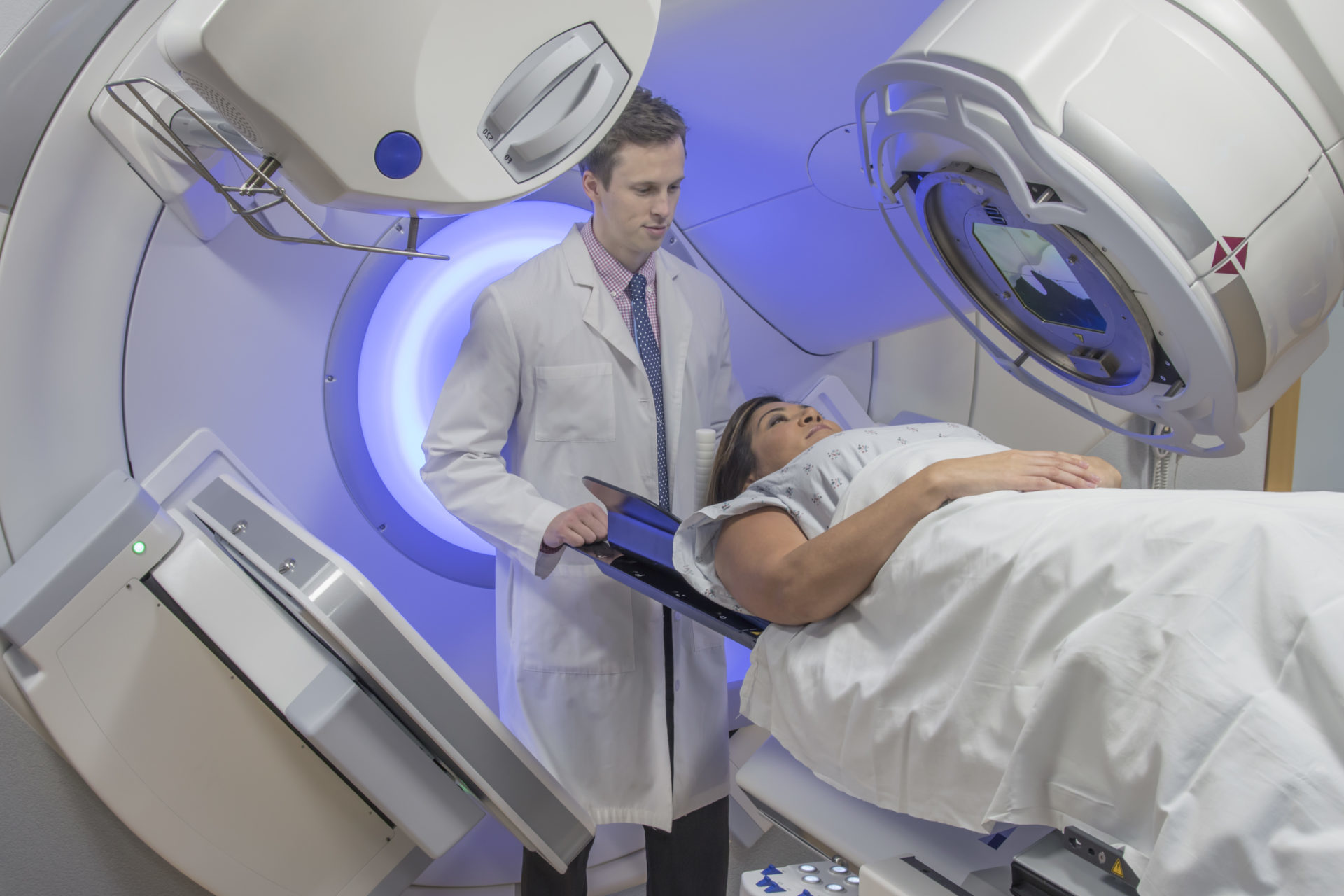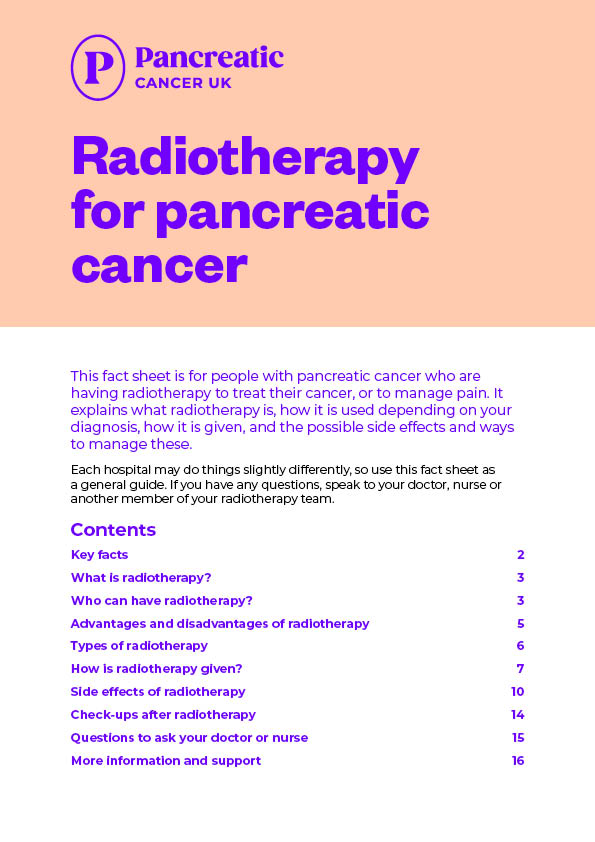Key facts
- Radiotherapy uses radiation to destroy cancer cells.
- A machine called a linear accelerator (linac) directs beams of radiation at the cancer from outside the body. The machine will not touch you during the treatment.
- If you have pancreatic cancer, you may have radiotherapy on its own, or together with chemotherapy. This is called chemoradiotherapy.
- Chemoradiotherapy may be suitable for some people with borderline resectable pancreatic cancer. The aim is to shrink the cancer enough to make it possible to remove it with surgery.
- Chemoradiotherapy may be offered to people with locally advanced pancreatic cancer. It may help control the cancer and slow down its growth.
- SABR (stereotactic ablative body radiotherapy) may be another option for locally advanced cancer. SABR delivers higher doses of radiotherapy to a very specific area over fewer treatments. You will have up to three months of chemotherapy first.
- Pancreatic cancer that has spread to other parts of the body (advanced or metastatic cancer) can cause pain. You may be able to have radiotherapy to help relieve the pain. This is called palliative radiotherapy.
- You will usually go to the hospital Monday to Friday for your radiotherapy. How long treatment goes on for will vary, but it is usually three to six weeks. SABR will take one to two weeks. Palliative radiotherapy may be a single dose or a few sessions over one to three weeks.
- If you are having chemoradiotherapy, you will usually have chemotherapy on its own for three to six months to begin with. If the cancer has not grown, you will then have radiotherapy and chemotherapy every day from Monday to Friday, for three to six weeks.
- The chemotherapy drug most often used with radiotherapy is capecitabine, which is taken as a tablet.
- Radiotherapy can cause side effects but these are often mild. They may include fatigue, feeling and being sick, and runny poo. Your medical team will help you manage them. If you have chemoradiotherapy, you may also get side effects from the chemotherapy.




